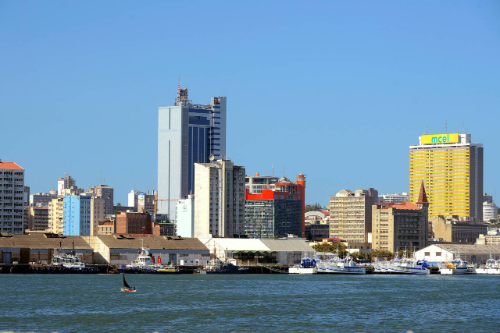Mozambique Cuts Rates Again to Help Economy Amid Unrest

TLDR
- Mozambique’s central bank reduced its Mimo rate to 12.25% from 12.75%
- That extends its longest easing cycle since 2017 to support an economy hit by post-election unrest
- Protests following disputed October elections have disrupted trade, mining, and business activity
Mozambique’s central bank reduced its Mimo rate to 12.25% from 12.75%, extending its longest easing cycle since 2017 to support an economy hit by post-election unrest. The Banco de Moçambique also cut reserve requirements on foreign and local currency liabilities to 29.5% and 29% from 39.5% and 39%, following International Monetary Fund advice.
Governor Rogerio Zandamela cited expectations of single-digit inflation despite risks from political tensions, fiscal concerns, and climate shocks. Inflation rose to 4.2% in December from 2.8% in November, driven by food price increases.
Protests following disputed October elections have disrupted trade, mining, and business activity, with Standard Bank predicting economic contraction. Opposition leader Venâncio Mondlane has paused demonstrations but warned they could resume if newly sworn-in President Daniel Chapo fails to meet demands, including lower electricity tariffs.
Daba is Africa's leading investment platform for private and public markets. Download here
Key Takeaways
Mozambique’s latest rate cut reflects a strategy to support economic stability amid political turmoil. With protests leading to trade disruptions and inflationary pressure, the central bank is prioritizing liquidity to counter economic shocks. The unrest following the contested election has resulted in over 300 deaths, a contraction in output, and uncertainty for businesses. The rate cuts and reserve requirement reductions aim to stimulate lending and economic activity, but political instability remains a major risk. Mozambique’s experience highlights the delicate balance central banks in emerging markets must maintain—supporting growth while navigating political and external risks. The coming months will be key in determining whether monetary easing can counteract instability or if deeper structural interventions will be needed.

Next Frontier
Stay up to date on major news and events in African markets. Delivered weekly.
Pulse54
UDeep-dives into what’s old and new in Africa’s investment landscape. Delivered twice monthly.
Events
Sign up to stay informed about our regular webinars, product launches, and exhibitions.




